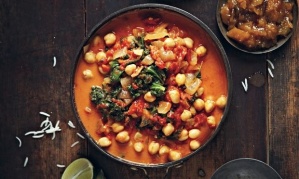31 Jan Forget fad diets: sustainable food is healthier and more eco-friendly
If you want to eat in a healthier and more cost-effective way, then follow a sustainable diet of home-grown vegetables and cut down on the meat
Now that the frantic period of making and breaking New Year’s resolutions is over, we can start taking a more honest look at the year ahead.
The problem with all that resolution malarkey is three-fold. One, ambitious goals are all too easy to make before you have to start actually achieving anything; two, who in their right mind wants to train for a marathon in freezing January anyway; three, cake.
With January comes the calls for fad diets – and with them the long list of things you’re no longer meant to eat. But this year it’s time to do things a little differently – to ditch the drudge and take up some sustainable food resolutions you’re likely to keep for life.
Shopping sustainably
There are a wealth of innovative business models out there that help students say sayonara to supermarkets and salut to the sustainable spread.
When it comes to shopping locally, there’s a perception that local food equals expensive food, but that’s not often the case. The Food Assembly, for example, enables people around the UK to buy directly from producers, with weekly collection points so customers can meet those who’ve produced their food.
“I was a little unsure at first,” says Food Assembly customer Jamie Ellen from Hackney Wick. “The meat does cost a bit more than the stuff I usually buy. However, I’m now a massive convert – I’m not only eating better, tastier meat, I’m eating less of it (which I’m told by my girlfriend is good for my carbon footprint) and eating lots more vegetables. Overall, I’m spending less and enjoying my meals more.”
Beyond fresh, tasty, seasonal food, shopping at farmers’ markets or from projects like The Food Assembly and Big Barn tends to mean that you radically cut down on packaging, too. With plastics having made a bad name for themselves where human health is concerned, this can only be a good thing.
Cutting the meat
According to Ben Williamson, press officer at People for the Ethical Treatment of Animals (Peta), interest in meat-free living has skyrocketed in recent years, with 12% of UK adults now following a vegetarian or vegan diet – and up to 20% for those aged 16-24.
“Whereas previous generations have been brought up addicted to fatty flesh and artery-clogging dairy products,” says Williamson, “today’s health-conscious youngsters are more aware than ever that a plant-based diet is better for our bodies.”
Health aside, Williamson points out that the meat industry has made a name for itself as an eco-no-no, pointing out that the UN has described it as “one of the most significant contributors to the most serious environmental problems, at every scale from local to global”.
For those who know that, realistically, they aren’t going to give up meat, what about at least cutting down? The Meat Free Monday campaign is a good place to start, or you could follow Manchester-based student Toral Dadral’s top tip and take up the 7pm rule:
“Meat’s always been a big thing in our family, and when I suggested that we try to cut down, my parents weren’t up for it,” says Dadral. “Eventually we agreed to try not eating meat before 7pm each day. Now my parents love it and have even bought a juicer to fuel their new-found addiction to carrot juice.”
Growing gains
If you’ve not tried growing your own produce before, you’re in for a treat. With even a little space, you can turn a small, nondescript space into a flourishing container garden, as this brilliant video from Vertical Veg demonstrates.
For those in colder climes who are keen to get going right away, why not have a go at growing indoors. Start with this article on growing the likes of mung beans and alfalfa sprouts, and this one on how to build your own mini greenhouse at home – extending the growing season in the process.
When growing anything, the most important skill to have is an ability to embrace the wonky. Unusually-shaped veg are one of the brilliant outcomes of non-supermarket food. Indeed, when seeking alternatives to cake, Buzz Lightyear carrots and duck-shaped tomatoes may just do the trick.
Source: Tess Riley



